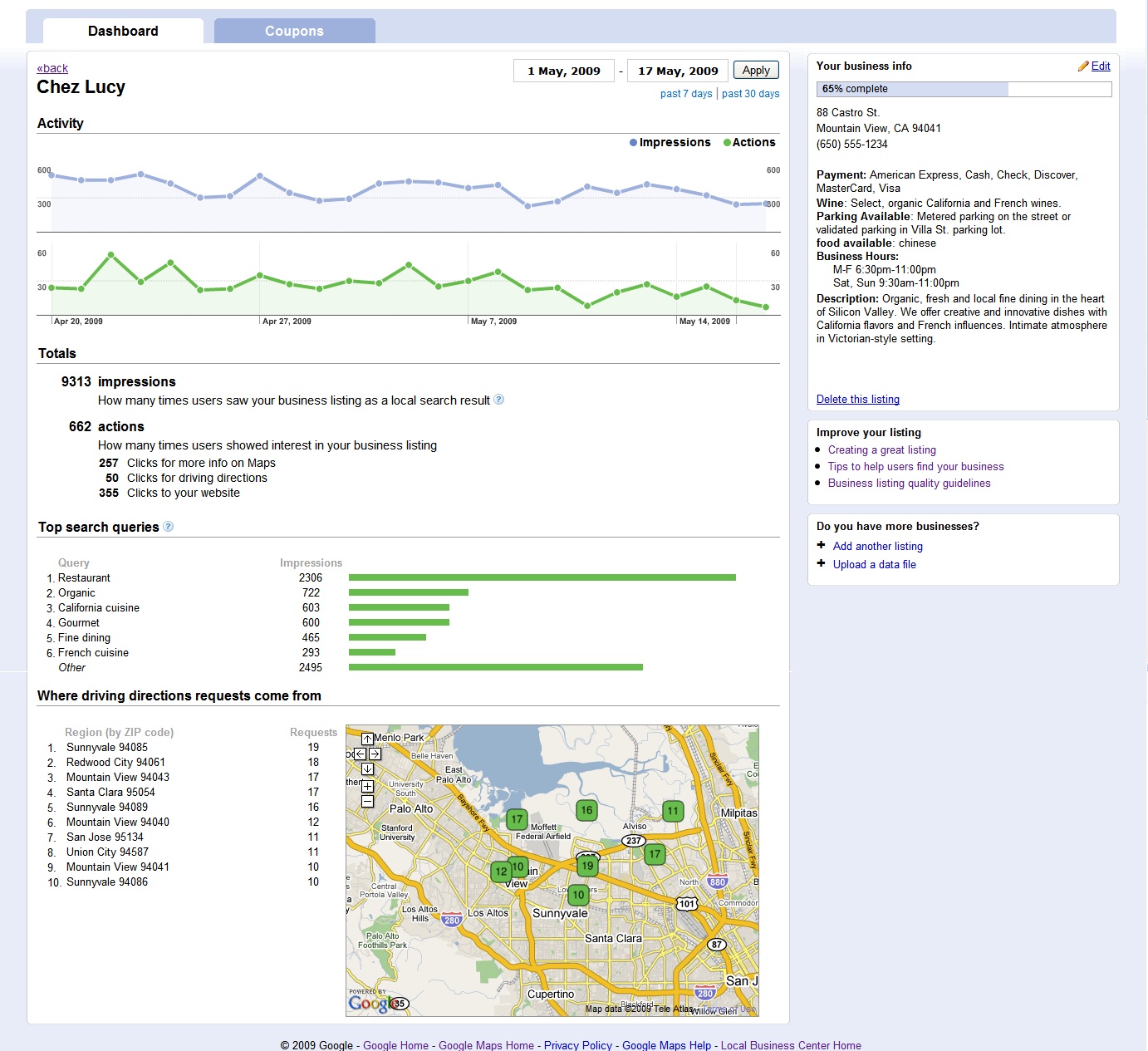Google's new data tools: it's all about business

For just a moment, forget about what Google's motives might be with the new analytics features that it's giving to users of the company's Local Business Center. Instead, think about how a business - whether a locally owned mom and pop shop or one of many stores in a national chain - can benefit from knowing what people are doing on the Internet in the moments before they find you in Google's local listings.
Related: Businesses gain access to Google data through Local Business Center
Were they searching for donuts when they came across your bagel shop? Were they looking for an ATM when they discovered your convenience store and the cash machine you have inside? Better yet, how many times was your company's listing actually seen? And of those times, how many times did people click on a link in the listing for driving directions or reviews? Did any of those queries come from a mobile device?
From a business perspective, the analytics tools make Local Business Center a game-changer. With it, real companies now have 21st Century tools at their disposal to analyze their marketing investments, the advertising spends or even which stores are strong performers and which are drains on the bottom line. It also gives them some insight into the habits of some customers.
Say, for example, there's a high number of requests for driving directions that originate from mobile devices near the freeway. With this information, the business owner might consider investing in a billboard near the freeway that advertises the business and brings in even more customers. Maybe the owner should invest in a bigger sign on the storefront so potential customers can find him easily.

Like it or not, Google has become the online version of the Yellow Pages. And finding a bank, pizza joint or a hotel in a strange city is as easy as hammering out a quick Google search query. It's in Google's best interest to get as many business owners as possible to invest in their listings by including the most accurate information about things such as hours of operation, driving directions and reviews. If Google can build an even greater reputation for having useful information in its search queries, the more likely that surfers will come back to Google to find information - instead of Yahoo, MSN or any of the other niche search engines that are hitting the scene.
It's easy to accuse Google of tapping into yet more information about its users and sharing it with business owners. But who's to say that's a bad thing in this case. Google is providing some pretty compelling services here. The business owner gets more insight into the actions of his customers - free of charge. The Web surfers get accurate information about the businesses that they're looking for on a regular basis - again, free of charge.
And Google? Well, it keeps building its position as the Internet's default search engine and broadening its horizons so that everyday users know that Google does more than just search Web sites. It's also good for searching for real places - not just their Web sites, but their actual locations - in cities everywhere.
That, of course, leads to more advertising dollars for Google. But who cares? If Google wants to make a few bucks off the search-and-find efforts happening every day, then more power to them. After all, Google isn't asking me for any money for access to these listings nor are they sending a bill to the businesses using them in an effort to drum up more business.
If my eyeballs on a Web page helps to fund a company that's providing me with free valuable services, then I have no problem with that. Do you?